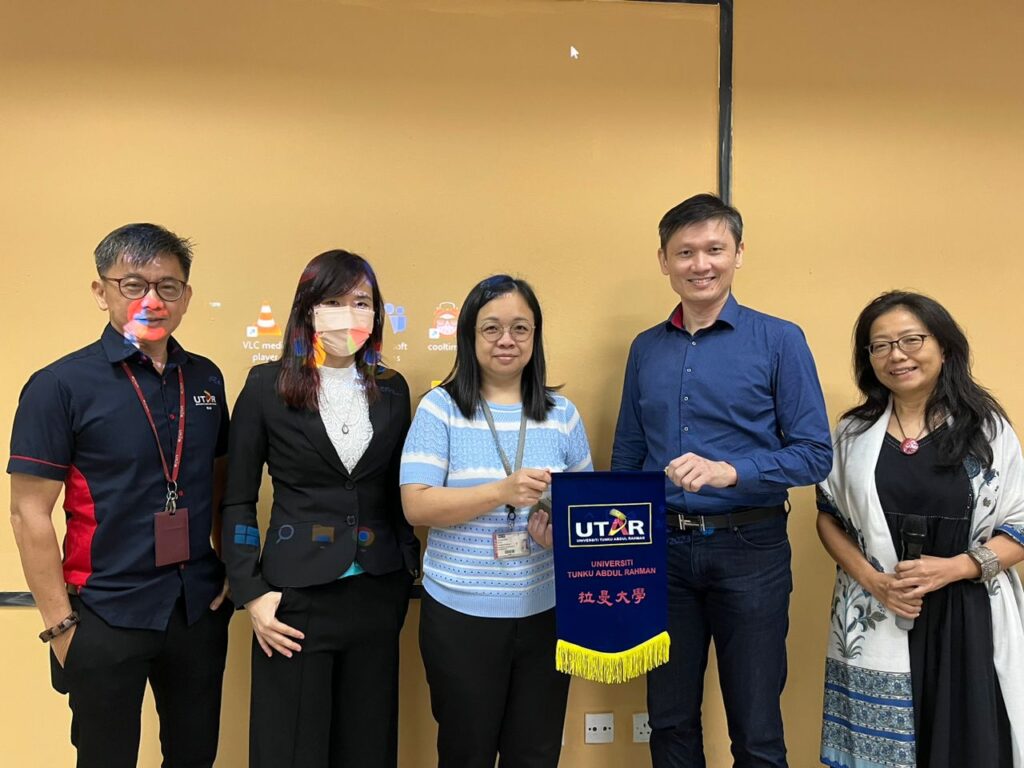On 3rd March 2023, Kian Soon (“KS”), the IAE’s CEO, participated in a dialogue session with 120 students from UTAR Sg. Long Campus. This dialogue was organised by the Faculty of Accountancy and Management and aimed to provide an opportunity for the students to engage with internal audit professionals and relate their studies to the real world. Those who participated in this dialogue are the final-year students taking the internal auditing elective paper introduced for the first time under the UTAR accountancy degree program.
The followings are the subject discussed and the salient points of explanation provided by KS during the one-and-a-half-hour dialogue.
UTAR Student:
How can Internal Auditors add value to their organisations?
IAE-KS:
In a nutshell, I add value by understanding and identifying what the stakeholders want to know, ought to know and do not know.
Based on this premise, I will perform risk assessment, data gathering and analysis to evaluate and confirm the underlying issues of the stakeholders’ concerns and their real root causes. Before reporting and satisfying the stakeholders’ desire to “Know”, my team and I will challenge our findings and answers and ensure they are factual, holistic, workable and conclusive.
UTAR Student:
Based on your explanation, could you provide an example of how you had value added to your client?
IAE-KS:
In one of the recent assignments, we addressed the Audit Committee’s concern about the uncertainty in the current global and domestic market sentiment on the company’s financial performance.
In this case, we conducted a stress test based on the financial performance forecast issued by the CFO. Under this assessment, we evaluated the worst and best-case scenarios should the interest rate rise and the commodity price drop further. These are the two main variables not within their control.
The test result showed the targeted range of annual sales and profit margins the company must achieve to weather this challenging time in the next twelve months. This analysis gave comfort and confidence to the Audit Committee and management as the worst-case scenario is not beyond their risk tolerance and management capability.
UTAR Student:
How can an internal auditor address the technological and skills-related challenges in internal auditing?
IAE-KS:
The key challenge for internal auditors is keeping pace with the escalation of cyber threats and risks and detecting and containing the potential threat before it strikes.
One interesting point is that cyber threats are no longer a technical issue. The modus operandi of these cyber-attack cases involves exploiting the human nature of carelessness, greed, curiosity, fear, loneliness, and kindness.
So, besides keeping up to date with technological issues and development, the Internal Auditor should help their organisation promote user awareness, warn of the exploitation used by cybercriminals, and guard against them.
UTAR Student:
Is the IPPF fully applicable to Malaysia’s internal audit function? Are there any missing areas that have not been addressed in the IPPF, and how do you benchmark the performance of an internal audit function against the IPPF in your quality assurance review (“QAR”)?
IAE-KS:
IPPF is the blueprint for all internal audit practitioners. Accordingly, IPPF is applicable in Malaysia and many other countries worldwide.
I can’t think of any missing areas in IPPF. The IPP is comprehensive and covers all the principles and aspects of internal auditing from the establishment to engagement, planning, execution, documentation, reporting, communication, and quality assurance.
When we perform the QAR, we will challenge the internal audit practices of the internal auditor based on the principles and provisions of the IPPF. Besides assessing the compliance of the IPPF, we will also evaluate the application effectiveness of the IPPF principles by the internal auditor in managing their department’s operation and human resources.
UTAR Student:
Do you happen to be facing difficulties upholding your independence as an internal auditor when carrying out your duty?
IAE-KS:
Many years ago, we were engaged by an overseas client to audit its OEM in Malaysia. The audit findings were not pleasant, and the management of the OEM was trying to bribe us.
We took the goodies (products manufactured by the OEM), informed them and distributed them to needy people as a form of charity under their name. At the same time, we beefed up our report very strictly, including the choice of words and their impact considering that our information will be used and challenged by other stakeholders. Through this process, we upheld our professionalism without compromising the client’s trust and the objectivity and independence of our work and report. At the same time, we have given a fair report and assessment of the OEM’s performance, allowing them to explain and improve themselves.
The moral of my lesson is as an internal auditor; we can be “helpful” at times. Still, there must be a limit, especially when the consequence is not just on your independence but on the person entrusted to you and society.

